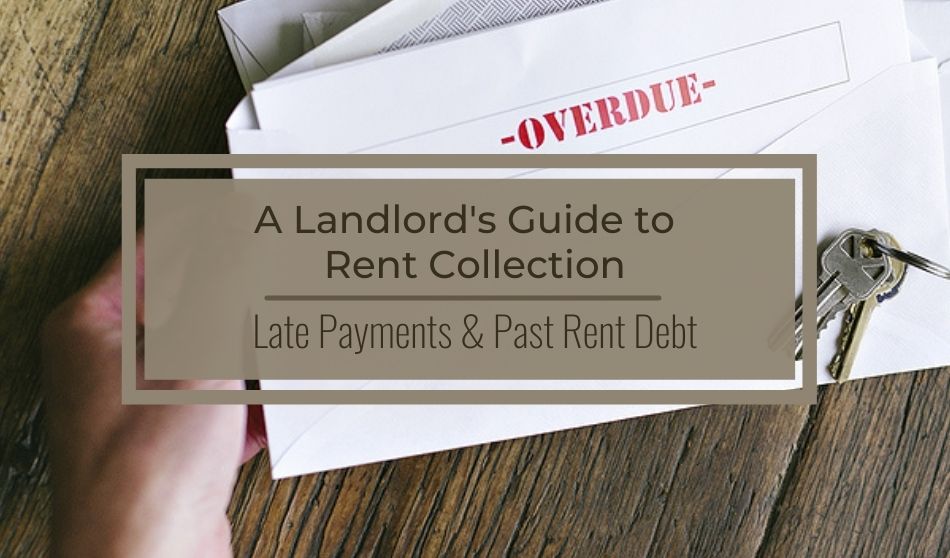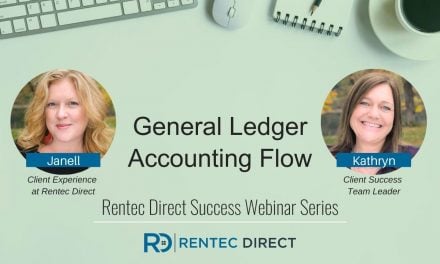
The old axiom ‘not if but when’ often rings true if you’ve been in property management for any length of time. And attempting to collect on past due and unpaid rent is no exception.
Pursuing collection of bad debt is tricky business so these tactics and tips might make that unfortunate task easier.
Collecting on Previous Tenants Past Due Rent
Your lease agreement serves as the legal contract that entitles you to collect unpaid rent and additional fees if a security deposit does not cover the amount due.
If you have a previous renter who owes you money, you have a few options.
Pursue Repayment In-House
Landlords and property managers may attempt to contact the previous renter themselves in an attempt to collect the rent.
Locating a previous renter owing back rent or reimbursement for damages may prove difficult as a tenant in default might not always offer a forwarding address.
One way to start the process is to send a demand letter to the last known address on file, even if it’s the rental address.
Be sure to mark the front of the envelope with ‘Address Service Requested’ or ‘Address Correction Requested’ and adhere the appropriate postage to cover the delivery and this added service.
When requested and purchased, the United States Postal Service (USPS) will research their database for the new address, if any, and forward the letter. In addition, the USPS will send you a postcard with the corrected new address.
Debt Reporting
You can also report the outstanding debt to the three major credit bureaus. It will then remain on those credit reports as unpaid rent. To cure the outstanding balance the previous tenant will need to cure the balance before the credit bureaus will remove the file.
If personal contact and credit reporting is unsuccessful, you can file a small claims case or hire a collection agency to pursue the claim.
Small Claims Court
If you file a small claims case against your tenant, following local court rules and your lease terms, you may also be able to collect money for additional damages, late fees, and legal fees. This tactic requires a heavy investment of time and effort throughout the process.
Check your state collection laws, contact your local small claims court for paperwork, and locate your tenant’s new mailing address (see above) so they can be notified of the proceedings. Depending on how much your tenant owes you, small claims court may or may not be worth the investment you have to make.
Debt Collection Agency
Working with a company that specializes in delinquent rent collection is the best option for landlords and property managers who do not want to spend their time or resources tracking down a tenant.
A reputable debt collector in an agency will know and follow debt collection laws outlined in the Fair Debt Collection Practices Act (FDCPA). Recognizing the need for accessing a trustworthy collections agency that benefits property managers and landlords by producing results.
Rent collection services will provide their clients a highly trained and experienced staff of skip tracers, attorneys, private investigators, and professional collection agents that team up to provide you an aggressive collection effort.
Some agencies provide a flat fee collection option that allows a property owner to immediately report a delinquent tenant to the credit bureaus and order a series of collection letters to be sent by a licensed collections agency. Flat-fee services are done online and charge a low-cost up-front payment allowing you to keep the majority of the proceeds, while contingency services charge a percentage of the money collected.
Related Helpful Rent Collection Tips
What to Do if a Tenant Skips Rent and Disappears
Overcoming Lost Revenue During Tenant Turnover
Pursuing Payment from Current Tenants with Delinquent Rent
The main component of a lease is the agreement the tenant has made to make timely payments of the agreed amount in exchange for the right to occupy the rental. When they pay late or less than the agreed amount, they have violated the lease agreement and you have options on how to proceed.
First and foremost, become the expert regarding your local and state regulations regarding tenant payments and your options to pursue and how to document and navigate those choices.
Payment Arrangements
If local regulations allow and rent payments have become severely delinquent consider allowing the tenant a fresh start where they pay their next rent amount in full plus an installment amount to put towards the past debt.
When making this type of payment arrangement, create a lease agreement addendum outlining the payment arrangements to pay current plus partial back rent.
An easy way to calculate the amount due is to divide the past rent debt by the number of months left in the current lease. If the lease will end soon or that amount is too great a burden, you might consider asking them to sign a lease extension, giving them longer to pay off the debt.
Payment Incentives
Depending on your regulations, you might be able to offer a rental discount for on-time, full, or partial payments.
Regardless of how you choose to work with your tenants to bring their account current, it is important to be aware of what you can not do.
What NOT to Do When Collecting Rent
Don’t Go Rogue
In the news are reports of landlords taking matters into their own hands to get tenants to pay rent or leave such as removing front doors and turning off utilities. This passive-aggressive behavior is not only unprofessional but is absolutely illegal.
Don’t Harass Your Tenants
Tenants have the right, regardless of their payment status, to quiet enjoyment of the home. That includes the freedom from harassment. To ensure you are careful not to cross the line, know and follow all regulations regarding written notices as well as verbal and electronic communication.
Don’t Give Unauthorized Notices
Notices such as late rent notices, notice to quit, notice to vacate, and demand letters are legal documents. Your state and local area have specific laws on which notices are appropriate and how to serve them. If following legal guidelines that require posting a notice on the door, be certain to place that notice in a sealed envelope.
Don’t Call Outside of Business Hours
Follow guidelines for calling within normal business hours outlined by your local regulations. It’s not only polite but can save you from being accused of harassment.
Don’t Abuse Electronic Communication
It may seem easy to shoot a text over or send a quick email but make sure to only text during business hours and keep all communication (electronic, verbal, or written) very professional and appropriate.
Don’t Show up Unannounced
It needs to be repeated, do not show up unannounced. If you need to go to the home, provide the proper notification. Just know, going to their home for the purpose of collecting rent is considered landlord harassment unless the tenant has agreed to a payment pickup.
Steps to Avoid Collection Issues
Setting expectations and clear communication are keep steps to avoid collection issues.
1. Conduct Tenant Screening
Much has been written on the importance of credit and background checks and employment verification in the tenant screening process and these guides can help with those best practices:
The Ultimate Guide to Tenant Screening for Landlords
How to Create Written Tenant Screening Criteria
It’s never too early to bring up your no-nonsense rent policy during the screening process. Outlining that policy may help weed out the bad players from an interest in your rental.
2. Create a Rent Collection Policy
It’s a good practice to not only add the following into your lease agreement but also create a document outlining your rent collection policy and procedures. Items to consider:
- A note that partial payments constitute a breach of the lease agreement and partial payments require pre-arrangement.
- Location and office hours if an in-person drop-off is an option.
PRO TIP: provide pre-stamped, pre-addressed envelopes and consider installing a dropbox for after hours. - Outline payment methods available. Be sure to note any exceptions and how these types of payments can be processed.
- Fees for processing payments
- The rent due date. Be sure to note if it is due on or by that date.
- Grace period. Helpful to include that a grace period is designed to account for weekends, holidays, mail delivery services, and circumstances outside of anyone’s control. It is not a time period to put off paying rent but rather as the name implies, a gracious buffer for the unexpected.
- Fees: List any late fees, processing fees, returned checks and non-sufficient fund fees, etc. Check local laws on fee limits.
- A note that it is the tenant’s responsibility to have funds available for processing the payment type chosen. Returned Checks, non-sufficient funds, returned checks, dishonored checks, etc.
- Consequences. In addition to any fees they might incur, outline what they can expect if they default on rent payment such as termination notices.
3. Offer Varied Payment Options
It’s been documented that offering a variety of payment options can help landlords receive more rental payments.
Modern Rent Payment Option for Money Orders, Cash, and Checks
Online Rent Payments (ACH bank draft, credit card, debit card)
Rent Collection During Pandemic and Eviction Moratoriums
Many misinterpret eviction moratorium to mean rent forgiveness. Because of this, some renters believe that any communication of a past due balance is in violation of the moratorium.
As landlords are aware, any amount in arrears is still due. So, how do you communicate a late balance without it being perceived as an eviction?
First, check with your state if a pay or quit notice is still allowed to be a part of your late payment processes. Although evictions are on a moratorium, the documentation of late payments still needs to be processed in such a way that communicates to the tenant that the rent amount is in arrears and still due. It is the consequences of breaking that portion of the lease that has been paused, not the responsibility of meeting that obligation.
Secondly, you may need to check with an attorney to review your notices to make sure they comply with current regulations.
Regardless of the type of notice to communicate that default that your state allows you to deliver at this time, try to couple that communication with resources and tools to help them as an outreach.
Tenant Resources | Help with Rent and Other Financial Assistance
People respond best when they know you care. When discussing their specific difficulties and payment plans, empathy is king.






Thanks for sharing this article. I appreciate your work.
You are more than welcome. Thank you for your feedback and kind words.
Thanks you for the article, it is very informative. What are the guidelines for collecting late fees out of a security deposit?
Thanks for that great question and the kind words. Unfortunately, the answer to your question is state and region-specific so I don’t have a ready answer for you. I would suggest contacting your local housing authority to find out the regulations on collecting late fees from security deposits in your area.
I am selling a unit, tenant is aware of that and now has not paid rent for the previous month and now the next month is due, what are my options to collect the past due rent/
Thank you for sharing your question. You would conduct business as usual and give the tenant property notices such as such as late notices, pay or quit notices, etc… based on your state and local regulations and lease or rental agreement for violating their lease or rental agreement. From there, you will need to decide if you will pursue an eviction or some other course of action. The three experts that can best help you are your attorney regarding eviction and real estate sales matters, your local housing authority to learn about landlord notices, and your local real estate board or agent for additional support in this matter through the sales process.
Hi Heather, thanks for sharing information. I am seeking some help and need some guidance to collect debt (past due) from tenant. I had property at Washington state and sold the property on Nov 2021. The tenant living in my property were not able to pay rent in time as they were impacted by COVID financially (don’t have any document or proof though). Due COVID , they were lagging behind on payment and the debt is now 13K. I gave tenant enough time to move out (July 15th – Nov) and they finally moved out on Nov 2021. Now despite contacting them multiple time the tenant has no interest to pay the rent has share any plan and only answer I have been receiving is that due to COVID they were financially impacted and unable to pay the rent. The tenant has moved out to new house where they are paying even higher rent. With all these situation , what are my options ? I worked with property management company and based on contract I can legally proceed for filing collection. Due to COVID and eviction moratorium I wasn’t sure do I still have legal ground to proceed for filing collection (Debt collection or Credit report). If you can suggest what are my option that will be great and also any reference for legal proceeding will be helpful. Meanwhile the Property management company I worked with are not helping to guide as the property has been sold and I am no more their customer so I am out of clue how to proceed.
That sounds like a difficult situation — unfortunately, I can’t offer legal advice but it appears Washington State Office of the Attorney General handles tenant-landlord issues as well as small claims court, so they might point you in the right direction regarding your rights due to the eviction moratorium and your unique situation. And, your CPA or financial advisor is the best resource to find out if you can claim that as a loss on your taxes. Also, a real estate attorney or the link above can help you decide if you need to pursue legal action.
You might also research if you qualify for some type of COVID relief (not sure if this is the best resource but it might get you going in the right direction: https://www.business.wa.gov/site/alias__business/1561/covid-19.aspx.
Wishing you all the best in your efforts and research and hope it comes out in your favor soon.
It would be helpful if Rentec would partner up with a national rent debt collection agency that all rental property managers could go through.
Excellent suggestion Donald! I’ll be sure to pass that on to the team. In the meantime, we are working on a credit reporting feature which should be available in the second quarter of this year so be sure to keep an eye on our Product Update Blog for that and any future enhancements.
Hi Heather. This one gets a bit complicated. My husband and I have a property in Oregon that we have recently sold and it is currently in escrow. It is a two unit condotel and both tenants know each other. Escrow is scheduled to close on 4/30/22 and the new buyer wants both tenants out.
The tenants in my studio apartment have found an apartment and are leaving at the end of March. They have always paid on time, but they don’t have a checking account. I am out of state. We made arrangements 2 years ago that they would pay the tenant in my larger unit and that tenant would send those funds to me online via Zelle.
Most months this arrangement has not been a problem. This month, however, the tenant in the larger unit received the other tenants payment and deliberately withheld it from me. He hasn’t paid either rent as he was saving his cash in case he needed to pay a large deposit for another apartment before this month was up. It sounds like he didn’t need the cash after all as he qualified for some kind of VA subsidy for a new apartment.
I have been texting the delinquent tenant every few days to find out when I can expect to get paid for both units. The tenant now says that he was involved in a bike accident and had to deplete his bank account of all funds (including the other tenants money) in order to be seen in the ER. Supposedly, his girlfriend sent him some money via Western Union (he says that she is out of the country for job training-you really can’t make this s*** up!) to pay both units current. But, the money is not yet in his account.
My husband and I are doubtful that he will ever pay. We understand that we can take him to collections for his debt, but the other tenants rent is theft as far as we are concerned. Would we be out of line reporting him to the police? Also, we did not get the SSN for the delinquent tenant when we rented the unit to him as he was an employee of the condotel and was highly recommended by staff there. Would a collections agent be able to get that information based on his name, phone number, and email? The total debt owed as of today is $1,375 ($500 is for the other tenant that wasn’t forwarded to us).
We only had $200 deposit. He was supposed to pay us $100 extra per month until we had $875 in the bank but he stopped making the extra payments once COVID hit and he was laid off work. He has repeatedly been late over the past two years. Each late payment (beyond 5 days) incurs a $25 late fee. He has never paid the late fee. Can we deduct them from his measly deposit?
It won’t break us to not get the payment as long as we can get this tenant out so our real estate deal doesn’t go sideways. But, I want him to learn a lesson and for future landlords to be aware about this guy. Should we send him a notice to pay or quit in case he decides to squat and screw up the closing of our sale?
Sorry for the long post. Any and all assistance would be greatly appreciated!
My landlord is charging $150 late fee is that even legal. And it doesn’t matter how much your rent is it’s $150 regardless I thought that they couldn’t charge more than 5% of your rent is that true
Hi Candi, thanks for the great question. It depends on the location as every area has it’s own regulations. Feel free to reach out to your local housing authority (housing department) to ask or reply with your city, county, and state and I can try to look that up for you.
I would like to clear a misconception, Collection agencies will not take on a independent landlords collection. They want large accounts as in a continuous stream of regular collections accounts so that means they’re only accessible if you own say 200 units where you would have a collections ongoing (usually a corporation). I was told by more than one collection company, it’s to costly for them to take on a one time debt collection, but I keep reading posts that state using a collection company is viable option, it isn’t unless you are a big rental property management company or something of that nature.